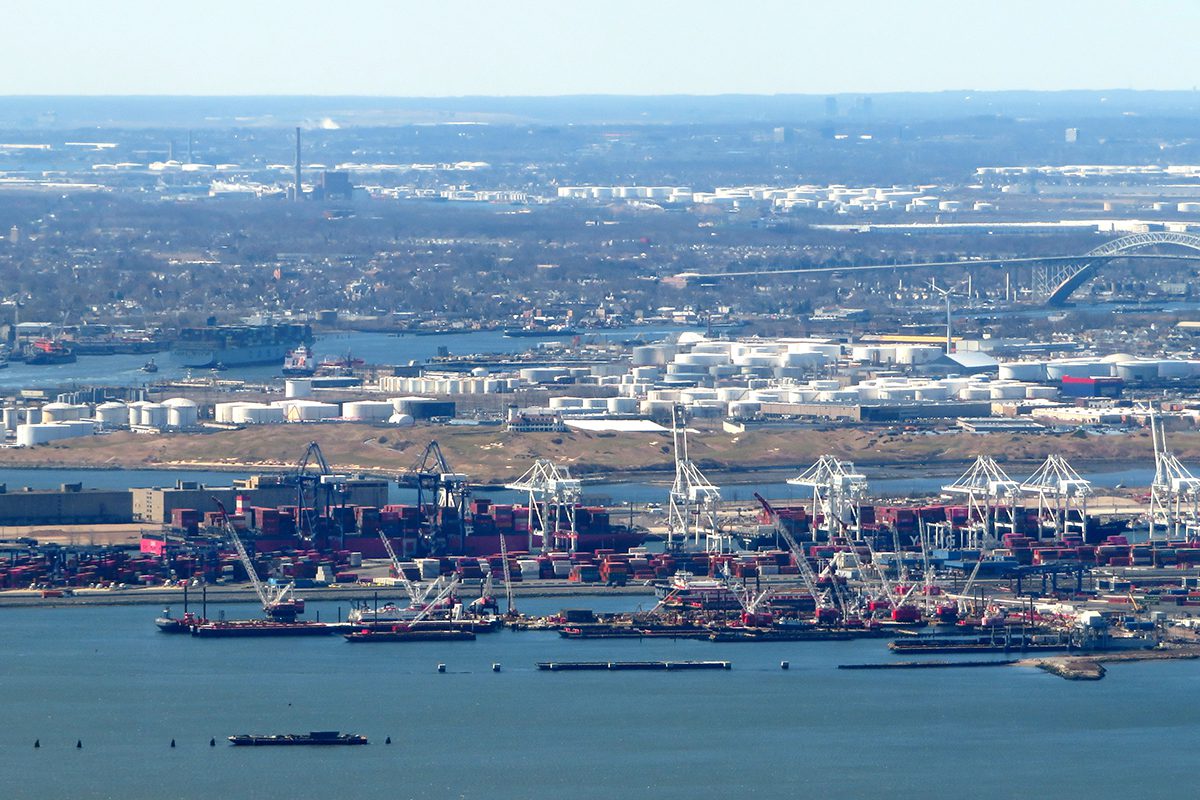Navigating burdensome and nuanced fleet compliance obligations will become an increasingly challenging task for domestic and international fleets. In particular, port terminals and businesses, along with intermodal rail yard operators, find themselves in the midst of this complex and ever-shifting landscape as New Jersey’s cargo handling equipment (CHE) regulation is now fully enacted.
Historically, fleets could simply point to California’s compliance requirements as the battlefield of federal, state, and local regulations for decades. But that has largely left California on its own island –requiring its own protocols and management practices. Now, however, this is becoming the trend as New Jersey rolls out reporting and cargo handling equipment inventory turnover requirements, specific to a wide swath of port-related businesses.
Establishing the Inventory Baseline
Regulated entities must complete an inventory report of its cargo handling equipment fleet to reflect the fleet details from January 1, 2023. Understanding who is regulated is the critical first step — effectively, a regulated entity is any company who owns or operates a terminal at a New Jersey port or intermodal railyard, or who provides the cargo equipment at those facilities. This umbrella approach will impact most companies conducting business in or with New Jersey’s ports and intermodal railyards.
To establish compliance, these regulated entities must first conduct an inventory baseline based on the fleet status in 2023. Reporting will include equipment specifications (make, model, year, serial), engine specifications (fuel, make, model, year, size, tier rating, and engine family name) and operational data (hours of use, fuel use, and seasonality, if applicable).
The regulation established an August 1, 2024 deadline for the initial reporting, and in early July their website stated the deadline is August 16, 2024.
Prepare for Ongoing Reporting
With the baseline established, regulated entities will then need to shift into ongoing reporting by August 1st annually to indicate inventory status for the preceding January 1st. Records of inventory changes, such as sales or transfers, must be maintained for at least five years.
Inventory Requirements
New Jersey does not play sheepishly, as their requirements begin swiftly. Starting March 1, 2025, a mere 7 months after the initial reporting is due, any new CHE acquisitions must be Tier 4-final rated. For existing CHE inventory, they cleverly call the turnover schedule a phase-in schedule when in fact it sets the quick pace to remove Tier 0, Tier 1, Tier 2, and Tier 3 with Tier 4-interim CHEs by March 1, 2025 through 2028, respectively. Alternatively, a fleet may request a fleet average plan instead of following the phase-out schedule, so long as it will generate at least as much in emission reductions. The rule also establishes a range of opacity limits for all diesel CHE engines.
Compliance Planning is the Right Solution
As the regulatory landscape continues to evolve (particularly for fleets doing business with domestic ports), the path to success appears to be charted along the following waypoints: develop forward-looking strategies and risk mitigation goals, build data collection protocols, and establish partnerships and reporting procedures.
While regulatory requirements impose obstacles that companies need to address, they also drive the climate agenda forward and can improve business operations. And make no mistake, New Jersey won’t be the last state to implement such requirements – it would appear that this type of operational environment is now becoming the foregone conclusion.
The strongest strategies fold in detailed evaluations of requirement timelines, flexibility provisions and extensions, and incorporates them into assessments of future operational options to seek opportunities for potential benefits.
TRC’s Compliance 360 Program proactively tracks transportation policy trends at the local, state, and federal level. Our 360-degree process ensures our team understands your priorities and continually monitors the evolving regulatory landscape to provide you with expert insights into the regulations that impact your business and the tools to help you prepare for them. Our regulatory compliance experts can help your organization navigate climate-related compliance requirements and implement your climate-related reporting targets. Learn more by visiting our Policy & Regulatory Support page here.
Gain insight into the regulations, rules, and policies transforming the clean commercial transportation at next year’s ACT Expo in Anaheim, California, from April 28 – May 1, 2025. Sessions will highlight the current state of clean transportation regulations and how entities are staying compliant and aware of these regulations today. Industry and policy experts will also discuss some of the most ground-breaking regulations ever adopted at the local, state, and federal levels, with a specific focus on the commercial transportation sector.


